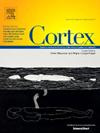Neural sensitivity to others' belief states in infancy predicts later theory of mind reasoning in childhood
IF 3.2
2区 心理学
Q1 BEHAVIORAL SCIENCES
引用次数: 0
Abstract
While pre-verbal infants may be sensitive to others' mental states, they are not able to accurately answer questions about them until several years later, an ability referred to as having a theory of mind. Here we ask whether infant social-cognitive sensitivity is subserved by the same brain mechanisms as those that support theory of mind in childhood. To do so, we explored the relationship between functional sensitivity of the right temporal-parietal junction to mental state processing in infancy, a region known to underlie theory of mind in older children, and explicit theory of mind reasoning in the same group several years later. In a small initial sample (N = 33), we find evidence of a longitudinal brain-behavioral link from infancy to childhood, providing preliminary support for a common mechanism for theory of mind across development. However, the brain metric that was predictive of individual differences was not the response to conditions that required tracking the beliefs, but instead, the response to a control condition where belief tracking was not obligatory to predict others' behavior. In hindsight, the ambiguity of this control condition may have best distinguished between infants who had different propensities to engage in belief tracking, suggesting a potential role for active experience in infancy contributing to individual differences in later theory of mind development in childhood. Given the exploratory nature of the study, other alternative explanations for these results must also be considered.
婴儿期对他人信念状态的神经敏感性预示着儿童时期的心智推理理论。
虽然不会说话的婴儿可能对他人的心理状态很敏感,但他们要在几年后才能准确地回答有关他人的问题,这种能力被称为“心智理论”。在这里,我们询问婴儿的社会认知敏感性是否与那些支持儿童心理理论的大脑机制相同。为此,我们探索了婴儿时期右颞顶叶连接对心理状态处理的功能敏感性与几年后同一组儿童的外显心理理论推理之间的关系,这一区域是年龄较大的儿童心理理论的基础。在一个小的初始样本(N = 33)中,我们发现了从婴儿期到儿童期大脑-行为纵向联系的证据,为跨发展心智理论的共同机制提供了初步支持。然而,预测个体差异的大脑指标并不是对需要跟踪信念的条件的反应,而是对控制条件的反应,在控制条件下,信念跟踪不是预测他人行为的义务。事后看来,这种控制条件的模糊性可能最好地区分了具有不同信仰跟踪倾向的婴儿,这表明婴儿时期的积极经验在后来的儿童心理发展理论中对个体差异有潜在的作用。考虑到研究的探索性,对这些结果的其他解释也必须考虑。
本文章由计算机程序翻译,如有差异,请以英文原文为准。
求助全文
约1分钟内获得全文
求助全文
来源期刊

Cortex
医学-行为科学
CiteScore
7.00
自引率
5.60%
发文量
250
审稿时长
74 days
期刊介绍:
CORTEX is an international journal devoted to the study of cognition and of the relationship between the nervous system and mental processes, particularly as these are reflected in the behaviour of patients with acquired brain lesions, normal volunteers, children with typical and atypical development, and in the activation of brain regions and systems as recorded by functional neuroimaging techniques. It was founded in 1964 by Ennio De Renzi.
 求助内容:
求助内容: 应助结果提醒方式:
应助结果提醒方式:


